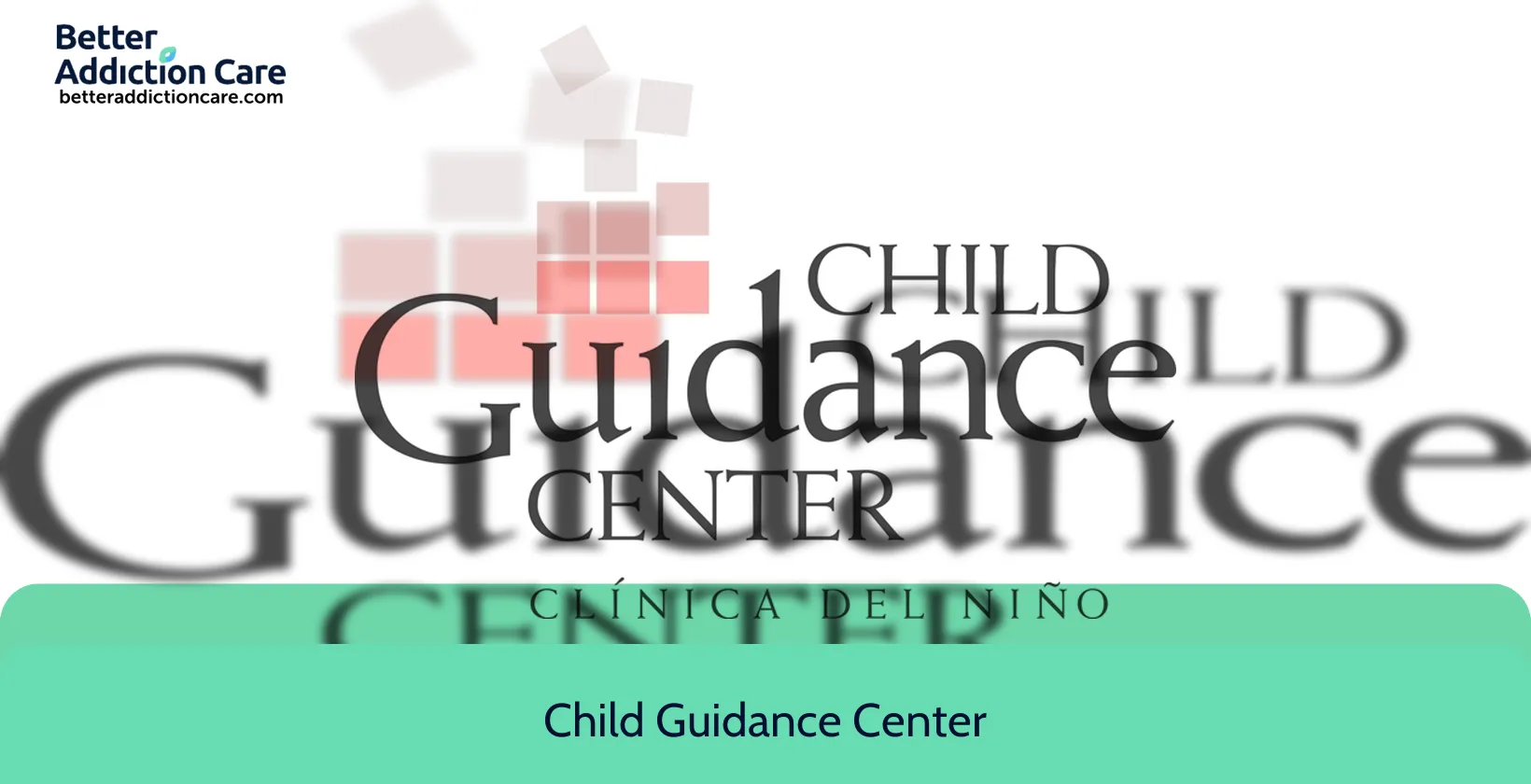Child Guidance Center
Overview
Child Guidance Center is an substance abuse treatment center that provides outpatient treatment for men and women from 18+ years of age. As part of their special programs, Child Guidance Center treats children/adolescents with serious emotional disturbance (sed), active duty military, and persons with eating disorders. To help patients achieve sobriety, Child Guidance Center provides intake assessments. Afterward, patients receive family counseling, individual psychotherapy, and cognitive behavioral therapy during treatment. Child Guidance Center is located in Santa Ana, California, providing treatment for people in Orange County, accepting county or local government funds, community mental health block grants, and community service block grants.
Child Guidance Center at a Glance
Payment Options
- County or local government funds
- Community Mental Health Block Grants
- Community Service Block Grants
- Medicaid
- Other State funds
Assessments
- Comprehensive mental health assessment
- Comprehensive substance use assessment
Age Groups
- Adults
- Children/adolescents
- Young adults
Operation
- Private for-profit organization
Highlights About Child Guidance Center
6.74/10
With an overall rating of 6.74/10, this facility has following balanced range of services. Alcohol Rehabilitation: 8.00/10, Drug Rehab and Detox: 6.00/10, Insurance and Payments: 6.00/10, Treatment Options: 6.97/10.-
Alcohol Rehabilitation 8.00
-
Treatment Options 6.97
-
Drug Rehab and Detox 6.00
-
Insurance and Payments 6.00
Treatment At Child Guidance Center
Treatment Conditions
- Mental health treatment
- Substance use treatment
- Co-occurring Disorders
Care Levels
- Outpatient
Treatment Modalities
- Family counseling
- Individual psychotherapy
- Cognitive Behavioral Therapy
- Eating Disorder Treatment
- Group counseling
Ancillary Services
Languages
- Sign language services for the deaf and hard of hearing
- Spanish
Special Programs
- Children/adolescents with serious emotional disturbance (SED)
- Active duty military
- Persons with eating disorders
- Clients who have experienced trauma
Contact Information
Read our Most Recent Article About Drug Addiction
DISCLAIMER: The facility name, logo and brand are the property and registered trademarks of Child Guidance Center, and are being used for identification and informational purposes only. Use of these names, logos and brands shall not imply endorsement. BetterAddictionCare.com is not affiliated with or sponsored by Child Guidance Center.









